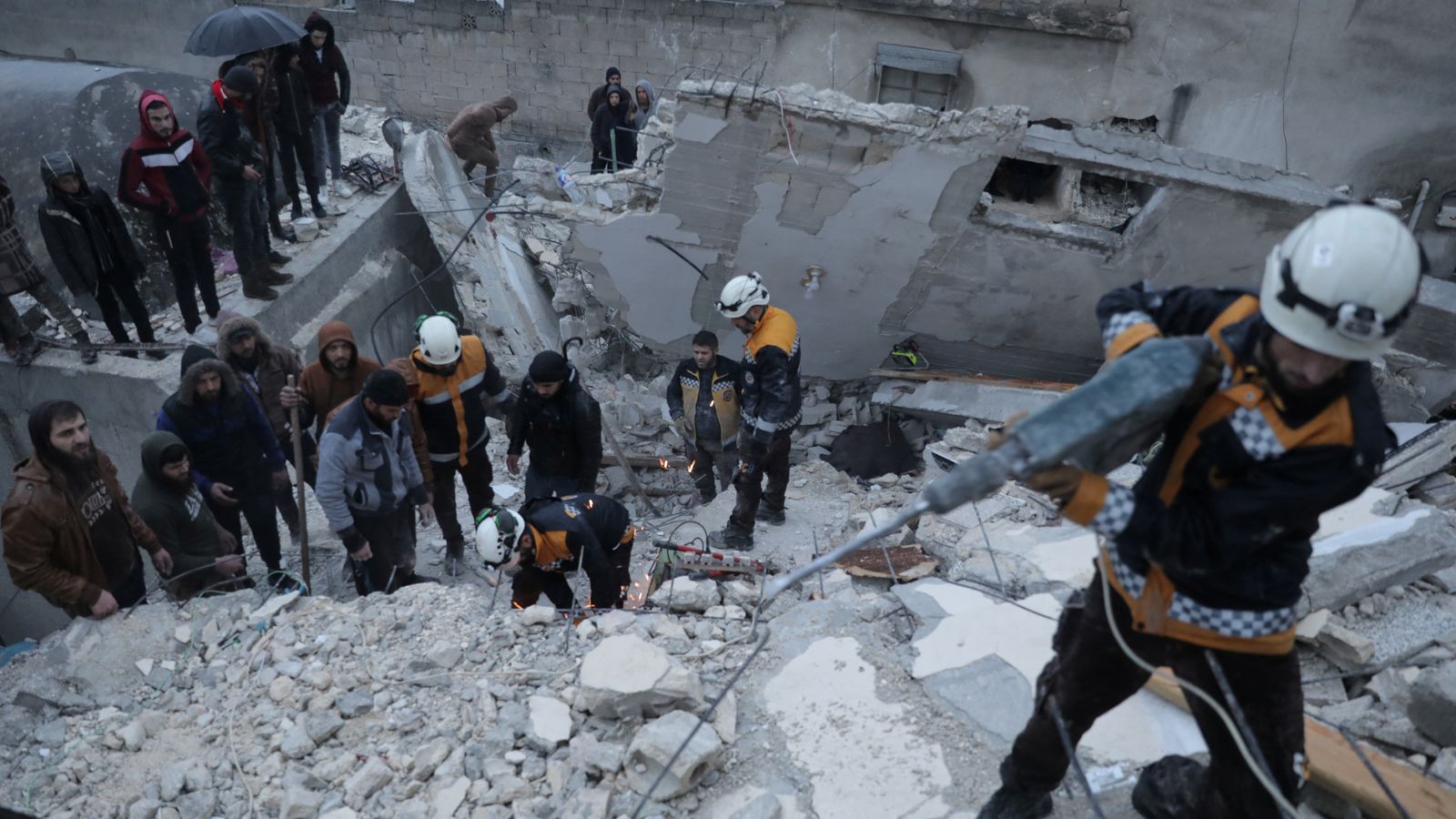‘Nightmare scenario’ facing Syria as nearly five and a half million people may be left homeless

Aid workers have said Syria is facing a “nightmare scenario” as nearly five and a half million people may be left homeless following Monday’s devastating earthquake.
With the war-torn country already dealing with the impact of over 10 years of conflict, aid workers say that the recovery operations in Syria are likely to take much longer than in Turkey.
At least 24,218 people have been confirmed dead in Turkey and Syria after the 7.8 magnitude earthquake struck on Monday with multiple aftershocks.
The Middle East & North Africa country cluster manager for the British Red Cross, Jeremy Smith, said: “In Syria, this is very much a worst-case scenario for us. This is a nightmare scenario.”
Due to the country’s already reduced medical, water and sanitation infrastructure, Mr Smith said the response is “going to be a longer period” due to the challenges brought by war and that recovery efforts in Turkey will “probably be a lot quicker”.
It comes amid warnings from the UN Refugee Agency which said on Friday that nearly five and half million people may be left homeless by the earthquake.
At least 2,166 people were killed in opposition-held northwest Syria by the earthquake, according to the Syrian White Helmets.
Sky’s Alex Crawford visited the northwestern province of Idlib, one of the country’s hardest-hit areas and last remaining city outside Syrian President Bashar al Assad’s regime’s control.
Please use Chrome browser for a more accessible video player
6:27
‘Children under rubble are not terrorists’
While aid from around the world has flooded into Turkey, there has been a stark divide in the offers to Syria.
Advertisement
The country has been hit by years of civil war and condemnation of its ruling regime’s treatment of its people, creating difficulties in getting aid into the country.
Aid agencies are likely to face difficulties accessing northern Syria, much of which is controlled by rebel groups who have been battling the regime.
The leader of the White Helmets emergency volunteer group has criticised the UN’s response in Syria and said on Friday that rebel-held areas had not received any aid from the UN since the earthquake, saying that the six trucks that crossed the border into Syria on Thursday had been a regular shipment that had been delayed.
Please use Chrome browser for a more accessible video player
0:29
Assad accuses West of ‘politicising’ quake crisis
Following the earthquake the Bab-al-Hawa crossing, a humanitarian aid corridor that is the only official way into the rebel-held area from outside Syria, was temporarily closed due to road damage.
The UN is not authorised to deliver aid into Syria through other border crossings under a UN Security Council resolution, but the council is set to discuss whether to allow it to provide aid to rebel-held areas of Syria through more than one Turkish border crossing with a decision due next week.
Read more:
Is more aid being sent to Turkey than Syria?
Newborn baby and family of six among those saved from beneath rubble
President Assad made his first reported trip to affected areas since the quake on Friday, visiting a hospital in Aleppo, according to state media.
On Friday, the UN pledged a $25m (£20m) grant for people in earthquake-stricken areas of Syria, which is in addition to a $25m grant announced earlier this week for emergency operations in both Turkey and Syria.